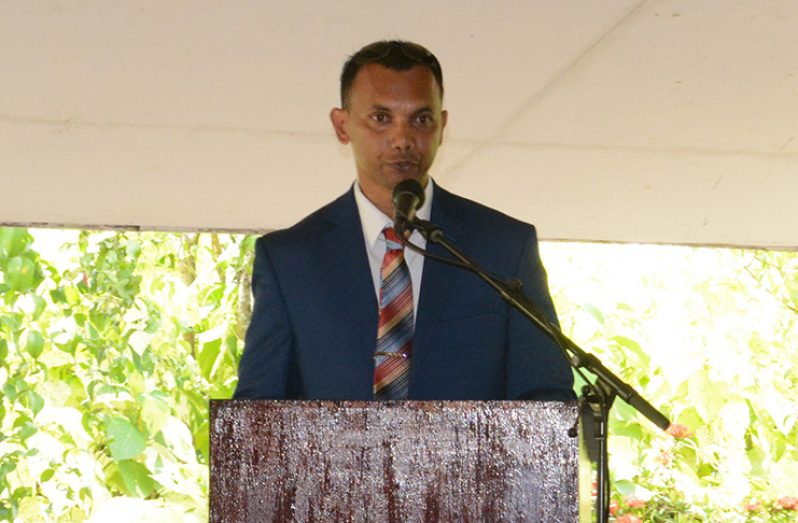– Guyana sees reduction
OVER the last eight years, the amount of cocaine flowing through the Caribbean region has more than quadrupled, increasing from 35 metric tonnes in 2010 to 184 metric tonnes in 2018.
This is according to Customs Anti-Narcotics Unit’s (CANU’s) Deputy Head, Leslie Ramlall, during his address at the opening ceremony of CANU Training Exercise 2019.
The event saw the participation of over 120 CANU ranks under the theme “stemming the flow of Narcotics through capacity building and Inter-Agency collaboration.”
He said the demand for narcotics continues to increase, along with unprecedented seizures and increased intelligence-sharing with local and international partners.
Ramlall said the agency destroyed several laboratories within the last three years, which indicates that the use of synthetic drugs is a new and rapidly expanding phenomenon in the region.
“And it leaves us to ponder what should be our approach to such a trend,” he said.
In addressing the situation locally, the Deputy Head said efforts of the counter- narcotics agencies, collectively, have been rewarding, over the last year.
“Not only have we seen a reduction in the flow of narcotics, but also a great reduction in the amount of persons attempting to smuggle narcotics through our airports, especially during the July/August period and the decreasing number of Guyanese being arrested at the more popular airports overseas,” Ramlall said.
He said that Guyana’s efforts are paying dividends in three categories: government support, increased intelligence sharing and, thirdly, a strategic and robust plan in ensuring that narco-traffickers and their networks are dismantled and assets confiscated.
“While we are tempted to smile and commend ourselves on these successes, it was disheartening to know that it was during this last year we also saw an increase in the use of synthetic drugs, particularly, ecstasy in our beautiful country,” the Deputy CANU Head stated.
He said that greater inter-agency collaboration will ensure that the young generation is not lost, and much work continues to be done by law enforcement agencies and other stakeholders to educate the nation on the dangers of narcotics.
Ramlall quoted Nelson Mandela and stated, “Education is the most powerful weapon which you can use to change the world.”
He said CANU will continue to reduce the flow of narcotics through the seizures, prosecution of traffickers and forfeiture of assets while working with the Special Organised Crime Unit (SOCU) and the Financial Investigative Intelligence Unit to aid in money laundering investigations.
“We remain dedicated to taking the profits out of narco trafficking in order to ensure that our people can continue to live a fruitful and productive life,” he said.
In February, 2018 a private school educator was sentenced to three years in jail, after he pleaded guilty to trafficking ecstasy pills. Larry John Adams, 20, admitted to the charge that, on February 20th, 2019, at Princes Street, Georgetown, he had eight MDMA pills for the purpose of trafficking. MDMA is Methylenedioxy?methamphetamine, which is known commonly as ecstasy.
In 2018, 532.8 grammes of ecstasy were seized by CANU officers.




.jpg)










